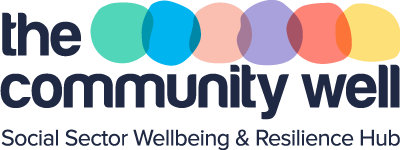CRISIS
Working in the social sector can be tough.
Many people support acute needs on the frontline and persist relentlessly with entrenched issues.
What is Crisis?
A crisis state can occur when there is a breakdown of a person’s coping skills which impairs their ability to make rational decisions and care for themselves or others. It may result from constant overwhelm, regularly dealing with unexpected situations, feeling threatened, conflict, exposure to trauma or responding to traumatic distress in others. It includes untreated chronic stress that leads to varying physical and emotional responses including fight or flight.
Why does this matter?
When people feel like they are in crisis, it impacts all parts of their life and interactions with others - with friends, family, co-workers, and others. Traumatic events challenge people’s sense of safety and security in the world. Chronic stress overwhelms the nervous system which impacts people’s ability to live in a way that sustains their wellbeing.
What does this look like when it's managed well?
It’s the understanding of how trauma looks and feels for different people. It’s managers having the knowledge and skills to provide practical support after a traumatic experience. There’s help close at hand when times are really tough. When supported well, individuals and teams in crisis are able to work through it together. It’s acknowledgement, support, and trust.
What does this look like when it's not managed well?
Individuals are in a heightened state of alert on a regular basis and their mental and physical health is suffering. Work might bring on anxiety, panic, and the inability to relax. Managers are overwhelmed themselves and don’t have the bandwidth to support others. You might see increased conflict, bullying or people shutting down. You might also see presenteeism, absenteeism, avoidance, or withdrawal. People are at the struggling end of the mental health continuum and not thriving at work.
CRISIS & SUPPORT SERVICES
CRISIS MANAGEMENT & SUPPORT
Ways to use this module
This module comprises a selection of resources to support your organisation when individuals or teams are in crisis.
- Use the checklist to understand what to do when someone has an injury.
- Watch the videos on understanding trauma and how your team can come through a crisis stronger.
- Read ‘How to help in a crisis.’
- When the crisis has been resolved, look at the recovery building block to help support getting back to work and the prevent toolbox to prevent further harm.



